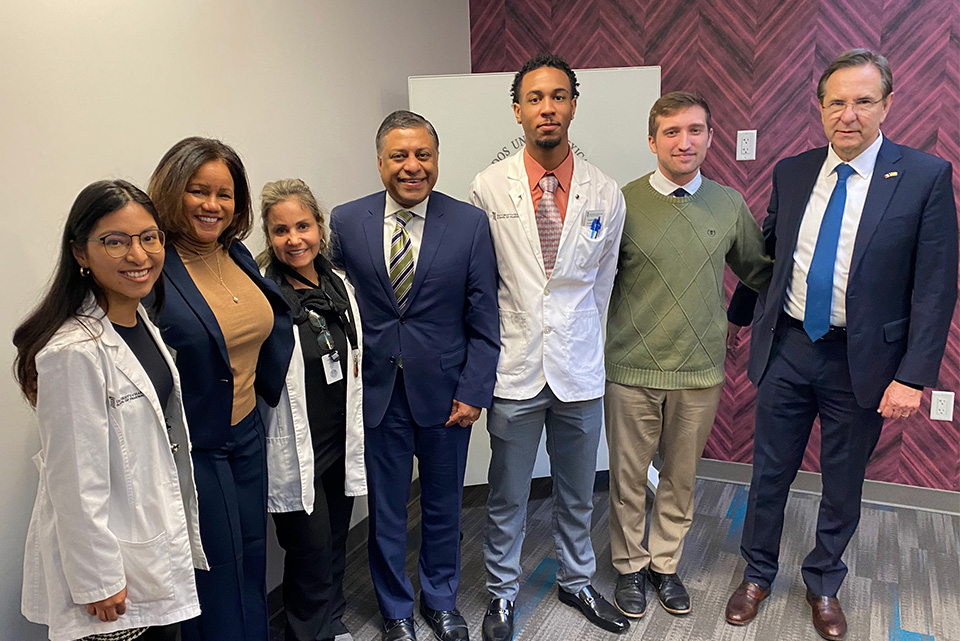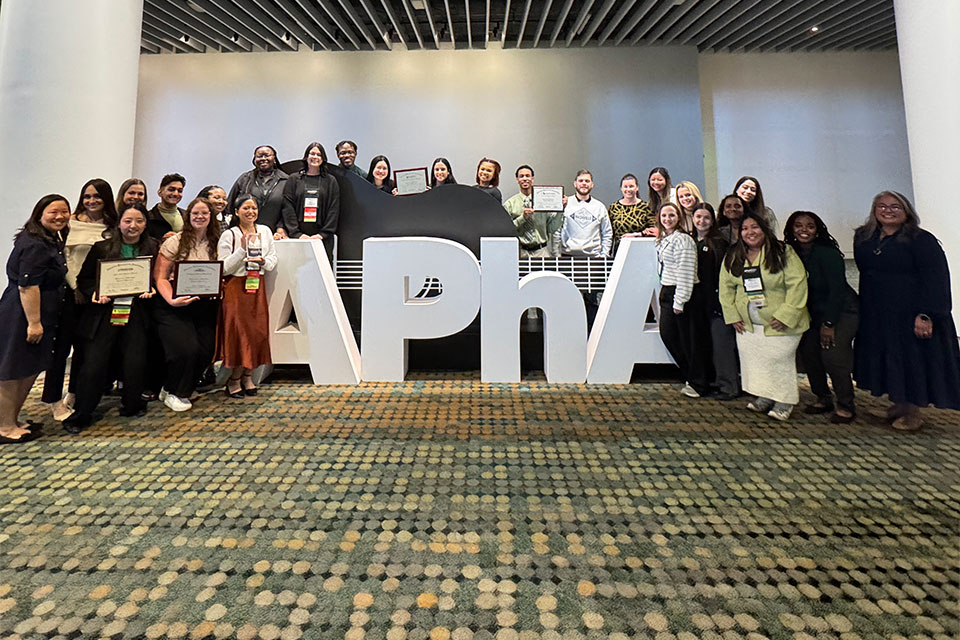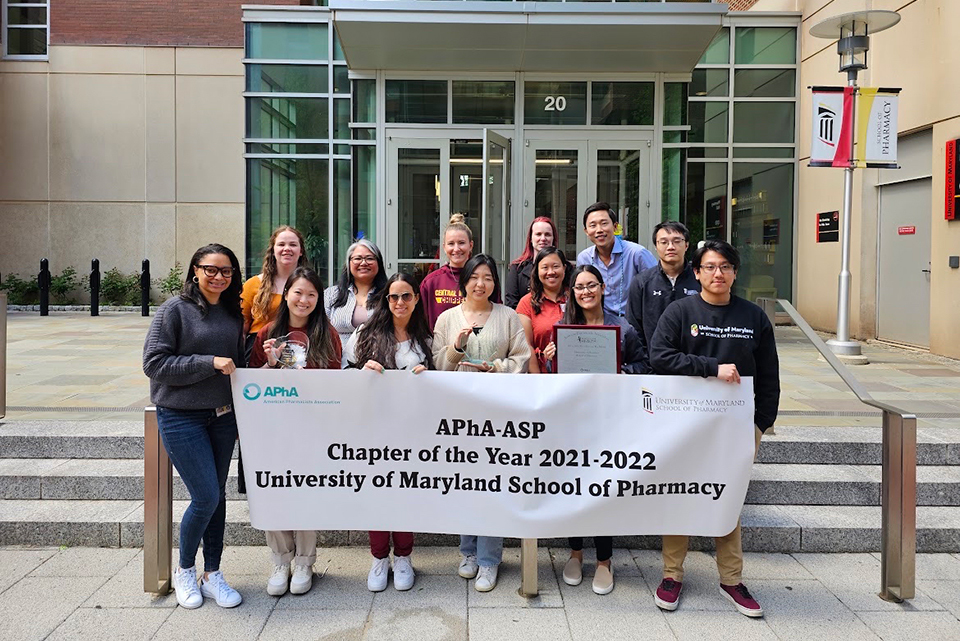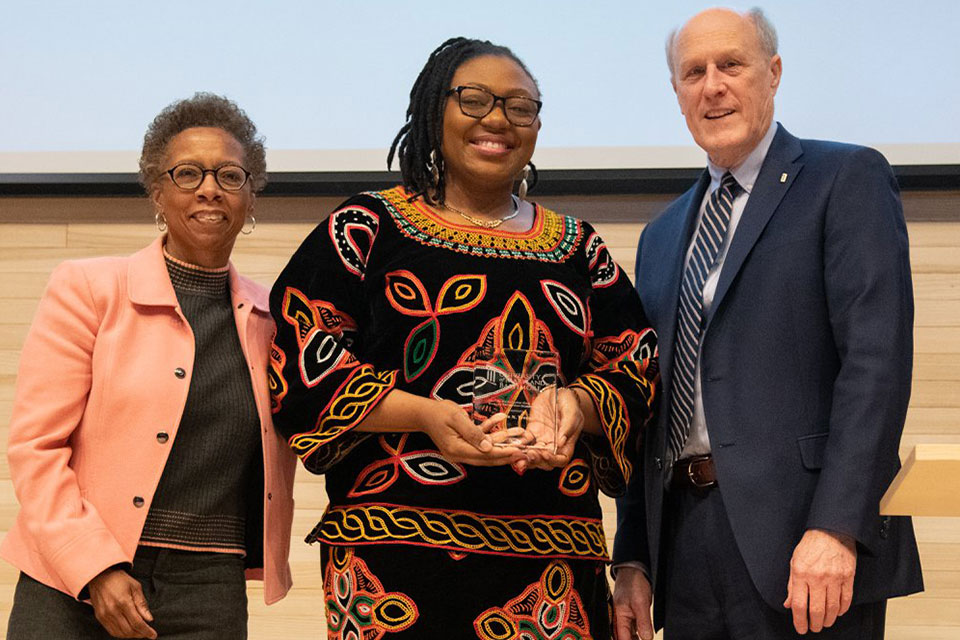Student Pharmacists Educate on Opioids at Mexican Embassy
Leaders of the student organization APhA-ASP gave presentation about fentanyl and naloxone.

By Andrew Tie
April 18, 2024
Feature image (left to right): Adamary K. Sanchez-Martinez, Yvette Mingo, Leonor Ruiz, Rahul Gupta, Reginald Briscoe, Joey Radvany, and Esteban Moctezuma Barragán
Three Doctor of Pharmacy (PharmD) students from the University of Maryland School of Pharmacy (UMSOP) were invited to give a presentation at the Mexican embassy in Washington, DC, on Jan. 17 as part of public health awareness about drug addiction.
The presentation, which was aimed broadly at Mexican citizens, provided education about the opioid fentanyl and how to administer naloxone, an over-the-counter nasal spray that can reverse a fentanyl overdose in an emergency. In addition to the public, Rahul Gupta, MD, MPH, MBA, FACP, director of National Drug Control Policy, and Esteban Moctezuma Barragán, the Mexican ambassador to the United States, were in attendance to celebrate the White House’s ongoing public health partnerships with the Mexican embassy.
“This was a special and unique opportunity to showcase the pharmacist as the medication expert,” said Sarah L.J. Michel, PhD, dean and professor of the School. “It’s a great example of how our student pharmacists are able to participate in health care, medication, and public health conversations, no matter their stage of training.”
Adamary K. Sanchez-Martinez, a third-year student pharmacist and vice president of patient care for UMSOP’s chapter of the American Pharmacists Association-Academy of Student Pharmacists (APhA-ASP), helped create this opportunity as part of the chapter’s commitment to public health education. She delivered the presentation in Spanish, while her fellow APhA-ASP officers, Joey Radvany, a third-year student pharmacist, and Reginald Briscoe, a second-year student pharmacist, provided visual demonstrations. The three also produced a video for the embassy to show at other Spanish-speaking embassies in Washington, DC.
“I am grateful to the Mexican embassy for allowing my classmates and me this opportunity to collaborate and educate on an important health issue,” Sanchez-Martinez said. “APhA-ASP is devoted to many aspects of patient health, and naloxone is an essential tool in combatting the ongoing fentanyl crisis.”
Cherokee Layson-Wolf, PharmD, BCACP, FAPhA, professor in the Department of Practice, Sciences, and Health Outcomes Research (P-SHOR) and a faculty co-advisor of APhA-ASP, commended the students for seeking out this opportunity and developing the presentation.
“I am proud of our student efforts at APhA-ASP to support patient education and overcome language barriers,” Layson-Wolf said. “The students put together a professional and effective presentation for a different cultural setting within a matter of days and did a fantastic job.”



